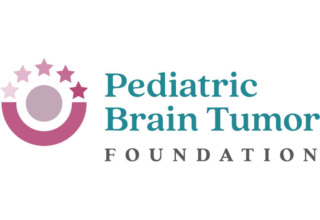
Traveling for Brain Tumor Treatments: How to Plan for Out-of-State or International Care
Traveling for brain tumor treatment can be overwhelming, but with the right preparation and support, it can also be a journey filled with hope and resilience.
For families confronting a brain tumor diagnosis, the emotional journey is often marked by significant anxiety and fear. Understanding how to manage these emotions is crucial for both the patient and their loved ones. This guide provides distress tolerance skills, practical advice, and support to help families navigate the emotional challenges of brain tumors.
Brain tumors can bring about emotional turmoil. Symptoms such as persistent headaches, ongoing fatigue, and changes in cognitive abilities can trigger distress. It’s important to acknowledge that feelings of anxiety and fear are normal responses to such life-altering changes. Many resources you come across may provide practical solutions, such as therapy, relaxation techniques, and developing community networks. These are all useful tips, however, acknowledging and validating your own emotions is just as important.
When you are dealing with a brain tumor diagnosis, it is natural to want to stay strong, not only for yourself, but also for your child and family. This does not mean, however, ignoring your own difficult emotions that come with this unique and challenging experience. Giving yourself permission to feel your feelings, even if they are negative or uncomfortable, is one of the best ways you can not only be there for your family, but also yourself.
Anxiety, fear, and sadness are often seen as weakness, but they are completely normal reactions to the situation you have found yourself in. Trying to push these feelings away does not usually work to make them disappear.
Here is an example from Acceptance and Commitment Therapy of this idea: Try to do everything you possibly can, for the next 10 seconds, to not think about your left pinky finger. Do not think about it and do not notice any sensations in it.
Actively trying to avoid the thought and feeling of your left pinky finger can make it even harder to not feel or think about it. Once you let yourself notice it is there and stop trying to avoid it, it becomes easier to live with and the thought passes. The same thing applies to emotions, although it may take a little bit more work. Here are some ways you can make room for those negative emotions.
Letting yourself feel does not mean you are giving up or staying stuck in the negative. It means you are honoring the reality of the situation. You are giving yourself permission to be honest about how hard this is. When you allow yourself to feel the icky feelings, you also create mental space for hope, strength, and resilience. It is easier said than done but practicing these distress tolerance techniques can support healthier mental health and more positive emotions in a time when they may be hard to come by.
In addition to these strategies, there are also some more pragmatic ways that anxiety can be addressed.
It is just as important to focus on positive experiences as it is your own negative emotions. Celebrating small achievements and enjoying moments of happiness can help shift focus from fear to resilience and hope.
Managing a brain tumor involves addressing both physical and emotional health. By creating a supportive environment, utilizing practical anxiety-reduction strategies, and building community connections, families can strengthen their resilience and face the future with hope.
For more detailed information and support, visit the Pediatric Brain Tumor Foundation at curethekids.org, and consider making a donation to support our mission to accelerate progress for kids with brain cancer at team.curethekids.org/campaign/594622/donate.
Traveling for brain tumor treatment can be overwhelming, but with the right preparation and support, it can also be a journey filled with hope and resilience.
